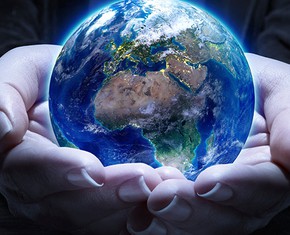The views expressed in our content reflect individual perspectives and do not represent the authoritative views of the Baha'i Faith.
All men have been created to carry forward an ever-advancing civilization. The Almighty beareth Me witness: To act like the beasts of the field is unworthy of man. Those virtues that befit his dignity are forbearance, mercy, compassion and loving-kindness towards all the peoples and kindreds of the earth. – Baha’u’llah, Gleanings from the Writings of Baha’u’llah, p. 214.
Most scholars who study the progress of human civilization report that in the modern world the concept of conscience has increasingly replaced the old value of honor—and as a result, honor code-based cultures are giving way all over the world to law-based cultures.
But in many of the tradition-bound places in the world–areas like southern Italy, the tribal sectors of Afghanistan and Pakistan, the mountain regions of the Balkans, Iran and Iraq, Guatemala and El Salvador, the nomadic peoples of Africa and Asia, and some parts of the rural American South and West—honor-based societies still flourish. They tend to persist in feudal, lightly-governed or warlord-controlled agrarian cultures that focus on land and its ownership, have little or no democratic tradition, do not uphold human rights, tolerate revenge and concentrate wealth and power in the hands of a few.
Gang cultures, with their insistence on “respect” and retaliation, and their fierce tribal loyalties, mimic those honor-based societies.
 By contrast, more modern, urbanized and industrialized societies tend to emphasize the rule of law and the rights and duties of individuals. A culture of law usually centers around a “social contract”—that often unwritten agreement everyone in a society accepts and relies on, and which we now call “civil society.” Social contracts mean we all agree to give up some individual freedoms, like the freedom to violently retaliate for slights or injuries, in favor of a legal system that has the duty of enforcing laws and punishing wrongdoing on behalf of civilization itself. They also mean that we agree to help each other.
By contrast, more modern, urbanized and industrialized societies tend to emphasize the rule of law and the rights and duties of individuals. A culture of law usually centers around a “social contract”—that often unwritten agreement everyone in a society accepts and relies on, and which we now call “civil society.” Social contracts mean we all agree to give up some individual freedoms, like the freedom to violently retaliate for slights or injuries, in favor of a legal system that has the duty of enforcing laws and punishing wrongdoing on behalf of civilization itself. They also mean that we agree to help each other.
The Baha’i teachings urge us all to uphold cultures based on conscience, integrity and the rule of law, but also ask that we go beyond that basic social contract by incorporating a spiritual commitment to extend our kindness and love toward others:
There is an emerging international consensus on the core characteristics of good governance, especially in relation to formal government. These characteristics include democracy, the rule of law, accountability, transparency and participation by civil society.
This consensus must be enlarged, however, to encompass an appreciation of the role that governance must assume in promoting the spiritual and material well-being of all members of society. Governance must be guided by universal values, including an ethic of service to the common good. – “Valuing Spirituality in Development,” The Baha’i International Community, February 1998.
With all of that as background, here’s what truly surprised me when I moved to Hollywood: how much I learned about a committed ethic of service and the benefits of spiritual civilization in that supposed hotbed of ego and materialism we call show business.
Yes, I know that the entertainment industry has an enormous amount of selfish and self-aggrandizing behavior, but sometimes that’s all our increasingly tabloid-style media allows us to see. It might surprise you, but during my time in Los Angeles, working with celebrities on projects that benefited the poorest and most needy people on earth, I actually saw the exact opposite.
Instead of the big egos you might expect to encounter in A-list slebs, I met and collaborated with incredibly giving, loving and generous human beings, who truly extended themselves, risking reputations and careers and even their lives to help others. Instead of the grasping, limelight-hogging reputations I’d heard about, I encountered enormous humility and dedication. Instead of self-interest, I discovered generosity, self-abnegation and self-sacrifice. Instead of vanity or arrogance, I found sincerity and service. Over and over, I saw that these truly talented artists had learned that the roar of the crowd did not complete them—that their souls wanted to help humanity.
Granted–because I worked primarily with a fairly self-selecting group of professed, practicing altruists and activists–you might expect that I wouldn’t run into the divas. I’m not saying they don’t exist, but hey, every arena of life has people at all stages of their spiritual development, from selfish to selfless. You can find that spectrum of spiritual growth and self-awareness everywhere.
Here’s my point: I’ve learned an enormous amount from the generous, giving people I’ve worked with in the entertainment industry. Some of those stars have huge hearts, and truly want to use their fame in ways that will benefit humanity. In their best and most wonderful moments, they reminded me of this eternal advice from the Baha’i writings:
Soon will your swiftly-passing days be over, and the fame and riches, the comforts, the joys provided by this rubbish-heap, the world, will be gone without a trace. Summon ye, then, the people to God, and invite humanity to follow the example of the Company on high. Be ye loving fathers to the orphan, and a refuge to the helpless, and a treasury for the poor, and a cure for the ailing. Be ye the helpers of every victim of oppression, the patrons of the disadvantaged. Think ye at all times of rendering some service to every member of the human race. – Abdu’l-Baha, Selections from the Writings of Abdu’l-Baha, p. 2.
















Comments
Sign in or create an account
Continue with Googleor